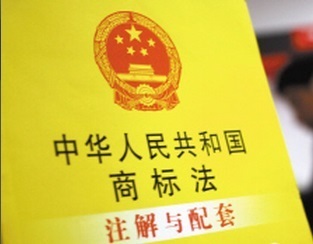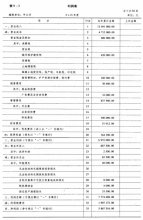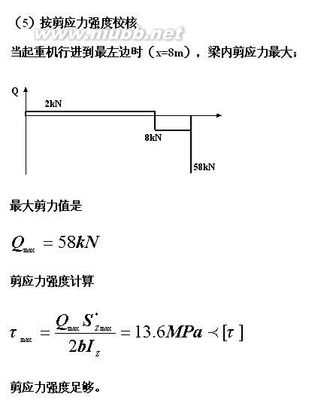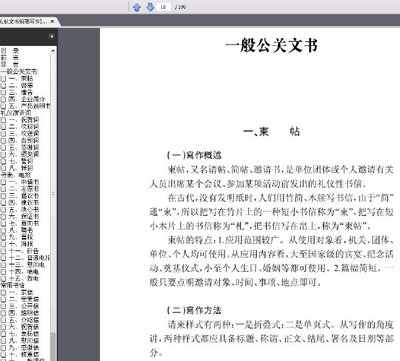第四章 词类转译与词义调整
一、词类的转译 Conversion
(一)名词转译为动词
A) 一些习语中的主体名词可以转成动词, 如:
1. We wouldn’t have any idea when the boy was born.
2. I will not only forgive your infidelity to me but will do you all the service I can.
3. As the man leaned over, the driver caught his first good look at the small cat-like face.
B)由动词派生出来的名词可转译成动词
1. The government called for the establishment of more schools.
2. There has been a tremendous expansion of kindergartens in both towns and villages.
3. The new situation requires the formation of a new strategy.
C) 含有动作意味的名词可转译成动词
1. Vietnamese War is a drain on American resources.
2. In fact, the abuse of drugs has become one of America’s most serious social problems.
3. The sight and sound of our jet planes filled me with special longing.
D) 由动词+er构成的名词可转译成动词
1. His father is a non-smoker, but he is a chain-smoker.
2. I am an amateur actor. He is a better player than I.
3. Talking with his son, the old man was the forgiver of the young man’s past wrong doings.
(二)介词转译成动词
1. He went to the shop for a bottle of wine.
2. At noon, she came home for lunch.
3. He came to my home for help.
4. He came to me with a luggage.
6. Up the street they went, past stores, across a broad square, and then entered a huge building.
(三)形容词可以转译成动词
1. It was a very informative meeting.
2. The manager is grateful to the customers for their valuable suggestions.
3. Animals become indifferent to their young as soon as their young can look after themselves.
(四)连词转译成动词
1. Eight and seven is fifteen.
2. They will return in 60 days or two months.
3. Winter is the fourth and last season in a year.
4. The distance is four kilometers or 2.4856 miles.
(五) 副词转译成动词

1. Our holiday is three weeks away.
2. When will your mother be back?
3. The boy told me that his father was out.
4. That day he was up before sunrise.
Translate the following sentences:
1. His very appearance at any affair proclaims it a triumph.
2. He was a regular visitor.
3. He showed with his eyes that he heard, but made no sign of assent or dissent.
4. We drove home a bit after midnight, over the river and through the lovely old sleeping town.
5. The successful fishermen of that day were already in.
英语中好多由名词派生出来的动词,以及由名词转用的动词,在汉语中往往不易找到相应的动词,这时可将其转译成汉语名词。
(一) 动词转译成名词
1. Formality has always characterized their relationship.
2. Such materials are characterized by good insulation and high resistance to wear.
3. In the US, blacks often score below whites on standardized intelligence tests.
有些英语被动句式中的动词,可以译成“受到(遭到)„+ 名词”
1. Several buildings around the square were damaged.
2. Mr. Snow was treated very shabbily by the U.S. press and officialdom.
(二) 形容词转译成名词
1. They did their best to help the sick and the wounded.
2. Tom was eloquent and elegant —— but soft.
(三) 副词转译成名词
由名词派生出来的副词,如译成汉语时很难找到对应词,而酌情将其译成名词。
1. Originally Ingrid Bergman was from Sweden.
2. He is strong physically, but weak mentally.
(一) 副词转译为形容词
有些副词是形容词派生出来的,翻译时如副词所修饰的动词转译为名词,那么副词亦转译为形容词。如:
1. He was deeply impressed by what they did in the critical moment.
2. She stupidly answered such a question.
3. The English language had changed subtly and pervasively.
(二) 名词转译为形容词
有时名词在句子中充当表语,前面通常有冠词,译时可以转换为形容词。
1. A newly-elected Senator is a power, I know that.
(一) 名词转译为副词
1. They were sitting on a bank and talking of the universe.
2. We set out in great haste for Venice.
3. I have the honor to inform you that your request is granted.
(二) 形容词转译为副词
1. About all these sticky questions, he writes with calm frankness.
2. A helicopter is free to go almost anywhere.
二、词义的调整(具体化、概括化、褒贬色彩)
(一)词义的具体化
具体化是指在译文中,用所指意义较窄的词或词组替换原文中所指意义较广的词或词组。如:
1. The Great Wall is a must for most foreign visitors to Beijing.
2. Two years’ working is a must to the people who want to take up graduated examination.
(二)词义的概括化
概括化是指在译文中用含义较广的单位替换原文中含义较窄的单位。如:
1. Every life has its roses and thorns.
2. The girl will get killed, because she’s always speeding.
3. The matter was finally settled under the table.
4. He earns scarcely enough to keep body and soul together.
5. If you dare to play the fox with me, I’ll shoot you at once.
6. George likes to work with his hand; when it comes to books, he’s square peg in a round hole.
(三)词义的褒贬色彩
1. Mr. Brown felt greatly flattered when he received the invitation to deliver a lecture.
2. Hans was too obviously flattering the gentleman by saying he was the most courageous man he had ever seen.
3. You’re flattering me by saying that.
有些英语词既有褒义又有贬义,如:
1. Aggressive 2. Plot 3.Champion 4.Future 5.ambitious 6.envy 7.exploit
第五章 词类的增减
(一)增词译法 Amplification
1.增补潜在词
I began the book yesterday.
The new American Secretary of State has proposed a world conference on food supplies.
2. 增补省略的词
Such is war: to the victor, the spoils; to the defeated, the costs.
Reading makes a full man; conference a ready man; writing an exact man.
3. 不及物动词增补宾语
He never drinks before driving.
Before liberation, his mother lived on washing.
Day after day he came to his work—— sweeping, scrubbing, cleaning.
4. 增补表示复数的词
They won victories in the past years.
The very earth trembled as with the tramps of horses and murmur of angry men.
I have left the marks of my nails in his impudent face.
5. 增补修饰性和解释性词语
The farmer snapped a stick and put it into the fire.
Into the dim clouds was swimming a crescent moon.
6. 增补范畴词
This is the best solution to your problem.
He was a patriotic, adventurous and romantic writer.
8. 增补某些概括性的词语
The paper discussed language teaching and language research.
Note that the words “foxy”, “mean” and “generous” require explanation.
The United States, China, England, France and Japan are now cooperation.
8. 增补语气助词
Don’t take it seriously. I’m just making fun of you.
The little boy had brought with him knife, scissors and so on, tinkling in his pocket.
(二)减词译法 Omission
1. 减去对偶同义词中的某一个词
The treaty was pronounced null and void.
The most amazing and inspiring part of the tale came after that.
Neither party shall cancel the contract without sufficient cause or reason.
2. 减去连接词
1) 减去表示时间的连词
When I sing, I sing off-key.
They waited a long time before he suddenly stepped out on the balcony and raised a hand in salute.
2) 减去表示条件的连词
If winter comes, can spring be far behind?
If I had known it, I would not have joined in it.
3) 减去表示原因的连接词
1. He wanted to become a missionary because he thought that was the way he could do most for people.
2. He didn’t come to the meeting as he was ill yesterday.
4) 减去并列连词
He looked gloomy and troubled.
Your son or your father or your wife or your teacher or your boss might be a good friend of yours.
3. 减去人称代词
1) 减去物主代词
Put your hat on your head.
He shrugged his shoulders, shook his head, closed his eyes, but said nothing.
In my childhood I learned a great deal about Russia.
2) 减去泛指的人称代词
We live and learn.
Everywhere you can find new types of men and objects in New China.
Fight when you can win; Move away when you cannot win.
4. 减去冠词
百度搜索“爱华网”,专业资料,生活学习,尽在爱华网
 爱华网
爱华网



